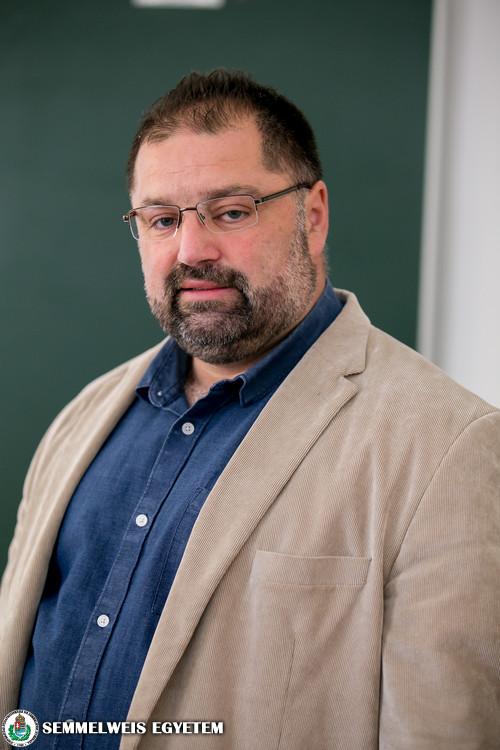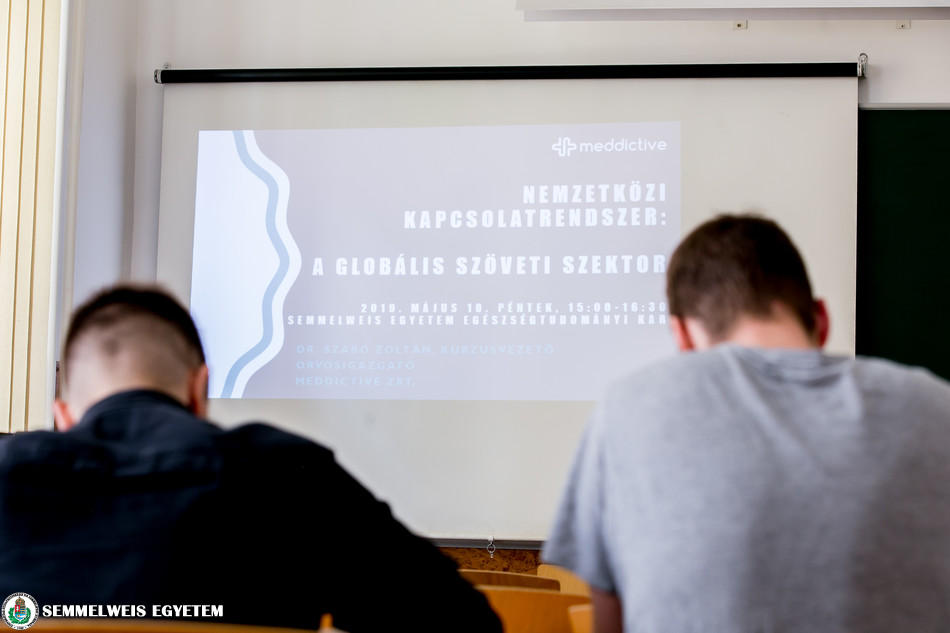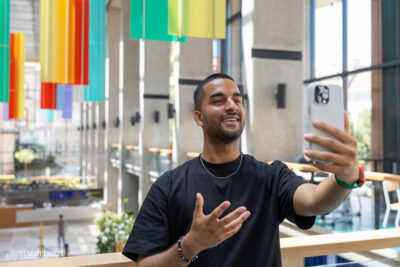The Faculty of Health Sciences (ETK) will launch a new course that is unique in the region from September, the beginning of the 2019/20 anniversary academic year, whose pilot program was recently completed. The elective course on tissue therapies, tissue bank technologies and management will primarily provide a solid theoretical foundation on this less well-known topic, which focuses on how various tissues from the human body (e.g. bone, cornea, heart valve, skin, etc.) can be used in therapies.
 One of the best-known examples of therapies that come from the human body is organ transplantation. Stem cell banks, as well as the use of blood and blood derivatives for healing are also used in a unified, clear and well-organized system, said Dr. Zoltán Szabó, the head of the tissue therapies, tissue bank technologies and management course to be launched at ETK. In his view, however, there is not yet decades of similar experience behind the therapeutic use of solid tissues. Moreover, these should be considered much rather as raw materials that still require further preparation before they can be used, such as tissue engineering work that requires a special technology, and a tissue bank background.
One of the best-known examples of therapies that come from the human body is organ transplantation. Stem cell banks, as well as the use of blood and blood derivatives for healing are also used in a unified, clear and well-organized system, said Dr. Zoltán Szabó, the head of the tissue therapies, tissue bank technologies and management course to be launched at ETK. In his view, however, there is not yet decades of similar experience behind the therapeutic use of solid tissues. Moreover, these should be considered much rather as raw materials that still require further preparation before they can be used, such as tissue engineering work that requires a special technology, and a tissue bank background.
During the half-year ETK course, students will learn among others about the three main groups of solid tissues used for therapy, which are the cornea (the transparent front part of the eye), connective tissues (bone, cartilage, tendons, ligaments, skin, etc.) and cardiovascular tissues (heart valve, vascular grafts). In certain cases, these tissues can be acquired from living people as well; for example, the bone parts that are removed and become “superfluous” during hip replacement surgery can be reused as bone replacements. In other cases, tissues used for therapy can be gained from deceased persons (e.g. cornea, heart valve), but – unlike with organ transplants – it is not necessary that the donor be brain-dead.
“ETK is the first in the region to introduce a tissue therapies course; following this year’s pilot semester, the regular course will begin in the anniversary academic year of 2019/20,” said Dr. Zoltán Zsolt Nagy, dean of the faculty, adding that the elective course will be available for undergraduate students. It is no coincidence that ETK is offering this course: it is a rising trend in western Europe that, especially in the cases of bones and connective tissue, highly qualified professionals perform the explantation, that is, the removal of the tissue material, under the oversight of a physician. The course will be basically a theoretical one, since this is the first time the topic is addressed in Hungarian higher education, but later postgraduate training focused on developing manual skills could be built upon it as well.
 The course is the result of an interdisciplinary cooperation, with lecturers to include experts from the National Blood Transfusion Service and the National Office of the Chief Medical Officer, as well as representatives of the professions involved in tissue therapy (Semmelweis University’s Department of Ophthalmology, the Városmajor Heart and Vascular Center and the Aladár Petz County Teaching Hospital, which represents the area of connective tissues), and the workers of Meddictive Zrt, which developed the course. Dr. Zoltán Szabó, the head of the course, is also the chief medical officer of Meddictive Zrt. The Hungarian startup has set the goal of vitalizing the sector, connecting tissue bank activity in Hungary into the international, especially the European network, as well as into research and development cooperation activities.
The course is the result of an interdisciplinary cooperation, with lecturers to include experts from the National Blood Transfusion Service and the National Office of the Chief Medical Officer, as well as representatives of the professions involved in tissue therapy (Semmelweis University’s Department of Ophthalmology, the Városmajor Heart and Vascular Center and the Aladár Petz County Teaching Hospital, which represents the area of connective tissues), and the workers of Meddictive Zrt, which developed the course. Dr. Zoltán Szabó, the head of the course, is also the chief medical officer of Meddictive Zrt. The Hungarian startup has set the goal of vitalizing the sector, connecting tissue bank activity in Hungary into the international, especially the European network, as well as into research and development cooperation activities.
Pálma Dobozi
Translation: Tamás Deme
Photo: Attila Kovács – Semmelweis University


